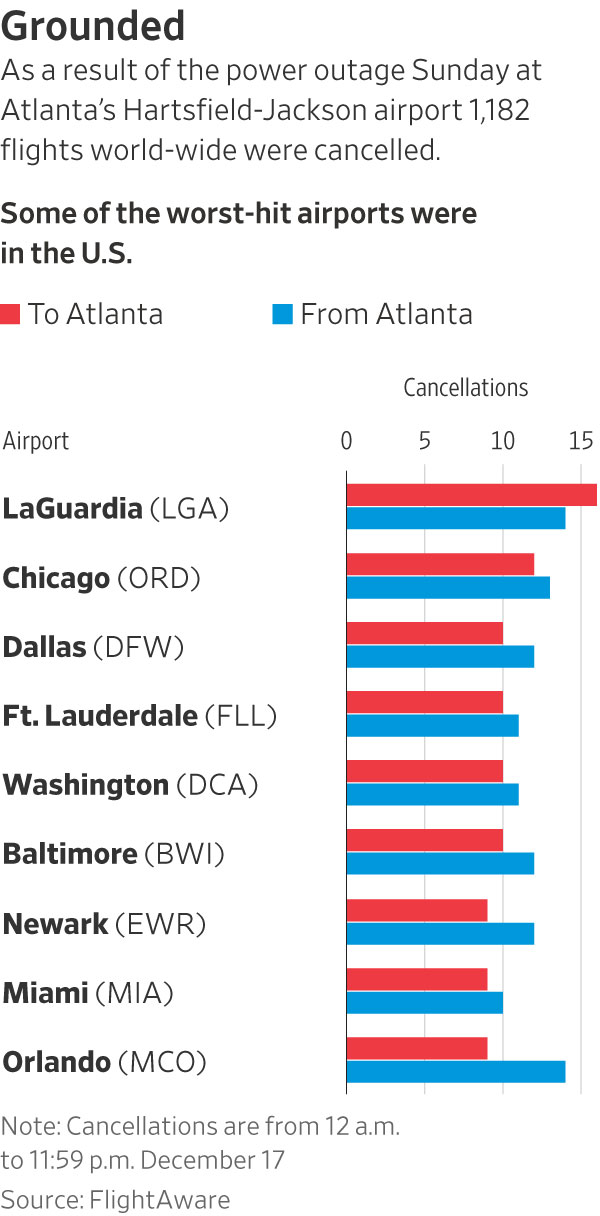Atlanta Airport, one of the busiest travel hubs in the world, often experiences flight cancellations due to a variety of factors. These can range from weather conditions and mechanical issues to air traffic control problems. Understanding what leads to these disruptions and how to stay informed is crucial for travelers planning their journeys through Hartsfield-Jackson Atlanta International Airport (ATL). This article delves into the reasons behind cancellations and provides practical tips for staying updated on your flight status.
Staying ahead of potential disruptions at ATL involves knowing where to look for updates and what actions to take if your flight is canceled. With numerous flights arriving and departing daily, it's essential for passengers to have reliable resources at their fingertips. Whether you're traveling domestically or internationally, being aware of the latest information can make all the difference in ensuring a smoother travel experience. Here’s everything you need to know about navigating through possible flight cancellations at Atlanta Airport.
Understanding Flight Delays and Cancellations
Flight delays and cancellations are common occurrences at airports worldwide, including Atlanta. Weather conditions such as storms, snow, or fog can significantly impact operations by grounding planes or causing rerouting. Mechanical failures with aircraft also contribute to unexpected changes in schedules. Airlines must prioritize safety over timeliness, which sometimes results in necessary but inconvenient decisions like canceling flights.
Air traffic congestion plays another critical role in determining whether flights operate smoothly. At peak times, too many planes trying to land or take off simultaneously lead to bottlenecks that result in extended waiting periods. Moreover, regulatory measures imposed by authorities during emergencies further complicate matters for airlines operating out of large hubs like ATL.
Passengers should familiarize themselves with typical causes so they can better anticipate potential issues when booking trips involving connections through busy airports. Awareness helps prepare them mentally and logistically for any eventuality while minimizing stress levels associated with last-minute changes.
Accessing Reliable Flight Status Information
To stay informed about your upcoming trip through Atlanta Airport, utilize official channels provided by both the airport itself and individual carriers servicing it. The Hartsfield-Jackson website offers comprehensive real-time tracking services detailing arrivals and departures statuses across different terminals. Additionally, mobile applications developed specifically for monitoring flights offer push notifications directly to users' devices whenever significant updates occur regarding specific bookings.
Many airlines now provide dedicated sections within their own portals where customers enrolled in loyalty programs receive priority alerts concerning personal reservations. Subscribing to text message alerts via SMS or email ensures instant communication regardless of location or time zone differences between origin and destination points. Furthermore, third-party websites specializing in aviation news often cover broader trends affecting multiple destinations simultaneously.
It pays dividends to cross-check various sources since discrepancies occasionally arise depending upon how quickly each platform processes incoming data feeds from ground staff reports back at the terminal gates. Having access to diverse streams of intelligence empowers travelers with greater peace of mind knowing they possess accurate insights needed most urgently under pressure situations.
Preparation Tips Before Departure
Before heading to the airport, ensure you've completed all pre-departure formalities such as checking-in online if available, printing boarding passes, and confirming luggage allowances match current regulations set forth by respective carriers. Arriving early allows ample opportunity not only to clear security checks without rushing but also gives contingency buffers should unforeseen circumstances arise before departure time.
Consider packing essentials separately inside carry-on bags including medications, chargers, snacks, and entertainment options just in case long waits become inevitable due to rescheduling efforts undertaken by airline personnel managing complex logistics behind scenes. Familiarizing oneself with customer service contact details ahead of time proves invaluable during stressful moments requiring immediate assistance.
Lastly, remember flexibility remains key when dealing with dynamic environments inherent within commercial aviation today. Maintaining open communication lines with representatives either physically present inside terminals or remotely accessible over phone lines enhances chances resolving complications swiftly and efficiently – ultimately saving valuable vacation days or business engagements elsewhere!

